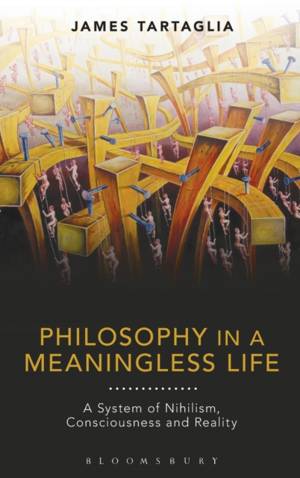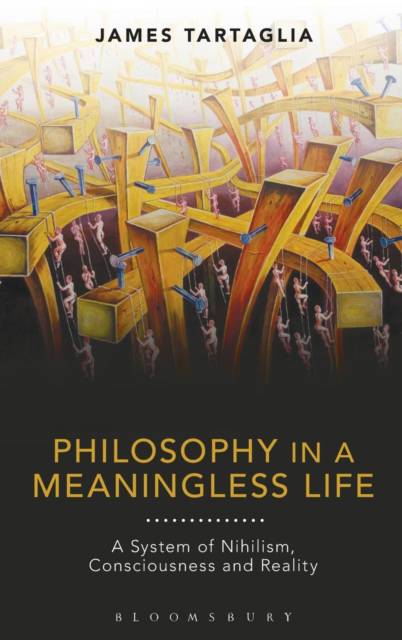
Bedankt voor het vertrouwen het afgelopen jaar! Om jou te bedanken bieden we GRATIS verzending (in België) aan op alles gedurende de hele maand januari.
- Afhalen na 1 uur in een winkel met voorraad
- In januari gratis thuislevering in België
- Ruim aanbod met 7 miljoen producten
Bedankt voor het vertrouwen het afgelopen jaar! Om jou te bedanken bieden we GRATIS verzending (in België) aan op alles gedurende de hele maand januari.
- Afhalen na 1 uur in een winkel met voorraad
- In januari gratis thuislevering in België
- Ruim aanbod met 7 miljoen producten
Zoeken
Philosophy in a Meaningless Life
A System of Nihilism, Consciousness and Reality
James Tartaglia
Hardcover | Engels
€ 296,95
+ 593 punten
Uitvoering
Omschrijving
Philosophy in a Meaningless Life provides an account of the nature of philosophy which is rooted in the question of the meaning of life. It makes a powerful and vivid case for believing that this question is neither obscure nor obsolete, but reflects a quintessentially human concern to which other traditional philosophical problems can be readily related; allowing them to be reconnected with natural interest, and providing a diagnosis of the typical lines of opposition across philosophy's debates.
James Tartaglia looks at the various ways philosophers have tried to avoid the conclusion that life is meaningless, and in the process have distanced philosophy from the concept of transcendence. Rejecting all of this, Tartaglia embraces nihilism ('we are here with nothing to do'), and uses transcendence both to provide a new solution to the problem of consciousness, and to explain away perplexities about time and universals. He concludes that with more self-awareness, philosophy can attain higher status within a culture increasingly in need of it.
James Tartaglia looks at the various ways philosophers have tried to avoid the conclusion that life is meaningless, and in the process have distanced philosophy from the concept of transcendence. Rejecting all of this, Tartaglia embraces nihilism ('we are here with nothing to do'), and uses transcendence both to provide a new solution to the problem of consciousness, and to explain away perplexities about time and universals. He concludes that with more self-awareness, philosophy can attain higher status within a culture increasingly in need of it.
Specificaties
Betrokkenen
- Auteur(s):
- Uitgeverij:
Inhoud
- Aantal bladzijden:
- 232
- Taal:
- Engels
Eigenschappen
- Productcode (EAN):
- 9781474247702
- Verschijningsdatum:
- 17/12/2015
- Uitvoering:
- Hardcover
- Formaat:
- Genaaid
- Afmetingen:
- 156 mm x 234 mm
- Gewicht:
- 503 g

Alleen bij Standaard Boekhandel
+ 593 punten op je klantenkaart van Standaard Boekhandel
Beoordelingen
We publiceren alleen reviews die voldoen aan de voorwaarden voor reviews. Bekijk onze voorwaarden voor reviews.









